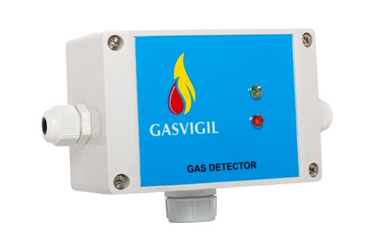
Critical Role Of Gas Monitoring Systems Today’s Industries
Gas Monitoring Systems Today’s Industries is continually evolving and the demand for safety and efficiency is paramount, gas monitoring systems have emerged as indispensable tools across various industries. From manufacturing to healthcare, these systems serve as guardians of workplace safety, environmental compliance, and operational efficiency
Understanding Gas Monitoring Systems
Gas monitoring systems consist of hardware and software designed to detect, quantify, and manage various gases present in the environmental or occupational setting. These systems utilize sensors that can identify toxic, flammable, or otherwise hazardous gases, enabling industries to ensure safe air quality, comply with regulations, and protect workers and the surrounding environment.
Essential Functions of Gas Monitoring Systems
- Safety Assurance
The primary function of gas monitoring systems is to protect the safety of workers. In industries such as oil and gas, mining, chemical manufacturing, and wastewater management, the presence of hazardous gases such as methane, hydrogen sulfide, and carbon monoxide can pose severe risks. - Regulatory Compliance
Many industries are subject to stringent regulations concerning air quality and gas emissions. Gas monitoring systems play a crucial role in ensuring compliance with these regulations, helping companies avoid hefty fines, legal issues, and reputational damage - Environmental Protection
Beyond workplace safety, gas monitoring systems contribute to environmental conservation. Industries that emit greenhouse gases or pollutants have a responsibility to monitor their emissions and minimize their environmental impact. - Operational Efficiency
Gas monitoring systems aid not only in safety and compliance but also in enhancing operational efficiency. By providing data on gas levels, these systems can help industries optimize their processes, reduce waste, and streamline operations
Applications Across Industries
- Oil and Gas
The oil and gas industry is one of the most significant beneficiaries of gas monitoring systems. With the potential for catastrophic leaks and exposure to toxic gases, effective monitoring technologies are essential to ensure safety and compliance. - Mining
In underground mining operations, gas monitoring systems are critical for detecting harmful gases such as methane and carbon monoxide. These systems enable miners to work more safely by providing early warnings of gas accumulation, thus preventing potential disasters. - Healthcare
In healthcare settings, gas monitoring systems are used to measure the concentrations of anesthetic gases and other medical gases. Ensuring that these substances remain within safe limits is crucial for patient and staff safety. - Chemical Manufacturing
Chemical plants must monitor the presence of toxic gases, such as ammonia and chlorine, to maintain a safe working environment. - Wastewater Treatment
Wastewater treatment facilities are at risk of gas emissions, leading to worker exposure to hazardous gases like hydrogen sulfide. Effective gas monitoring systems allow for early detection and mitigation of these gases, protecting staff and ensuring regulatory adherence.
The Future of Gas Monitoring Systems
As industries continue to embrace automation and smart technologies, the future of gas monitoring systems looks promising. Innovations such as advanced sensors, artificial intelligence, and the Internet of Things (IoT) are transforming how gas monitoring systems operate:
- Smart Sensors: The next generation of sensors will be more accurate, robust, and capable of detecting multiple gas types simultaneously.
- Data Analytics: Utilizing big data analytics will enhance predictive maintenance and allow for proactive risk management, improving safety and operational efficiency.
- Connectivity: IoT integration will enable remote monitoring and data collection, providing stakeholders with insights and alerts in real-time, regardless of their location.
Conclusion
The critical role of gas monitoring systems in today’s industries cannot be overstated. As we move forward, the demand for safer working environments and stricter regulatory compliance will continue to grow.
